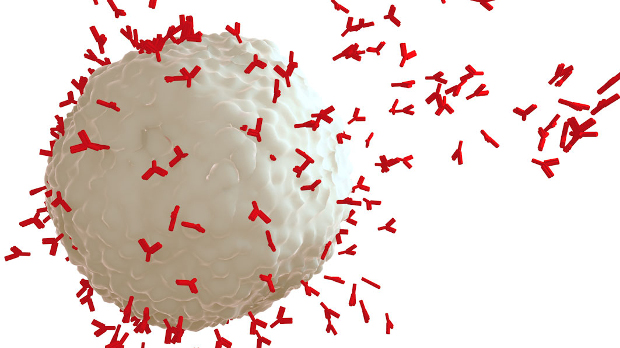 Antibody-producing B-cellsV. ALTHOUNIAN, SCIENCE TRANSLATIONAL MEDICINEA type of B cell that produces the inflammation-inducing cytokine granulocyte macrophage–colony stimulating factor (GM-CSF) may be key to driving disease-causing inflammation and relapses in multiple sclerosis (MS), according to research published today (October 21) in Science Translational Medicine. The results of the study, in which researchers examined blood samples from MS patients, suggest a possible mechanism as to why B cell-targeted therapies have been found to be efficacious for the disease.
Antibody-producing B-cellsV. ALTHOUNIAN, SCIENCE TRANSLATIONAL MEDICINEA type of B cell that produces the inflammation-inducing cytokine granulocyte macrophage–colony stimulating factor (GM-CSF) may be key to driving disease-causing inflammation and relapses in multiple sclerosis (MS), according to research published today (October 21) in Science Translational Medicine. The results of the study, in which researchers examined blood samples from MS patients, suggest a possible mechanism as to why B cell-targeted therapies have been found to be efficacious for the disease.
“This is an important paper and among the first to study the role of B cells in MS, which has predominantly been studied from a T cell perspective,” said Claudia Mauri, a professor of immunology at the University College London who was not involved in the work.
In MS, immune cells attack the protective myelin coating that surrounds nerve fibers that branch out from neurons, leading to difficulties in walking and balance, muscle spasms, numbness, and other symptoms resulting from faulty communication between the central nervous system (CNS) and the rest of the body. Among the cells of the adaptive immune system implicated in the disease, T cells have been most studied because they outnumber B cells in MS lesions and because of their dominant ...



















